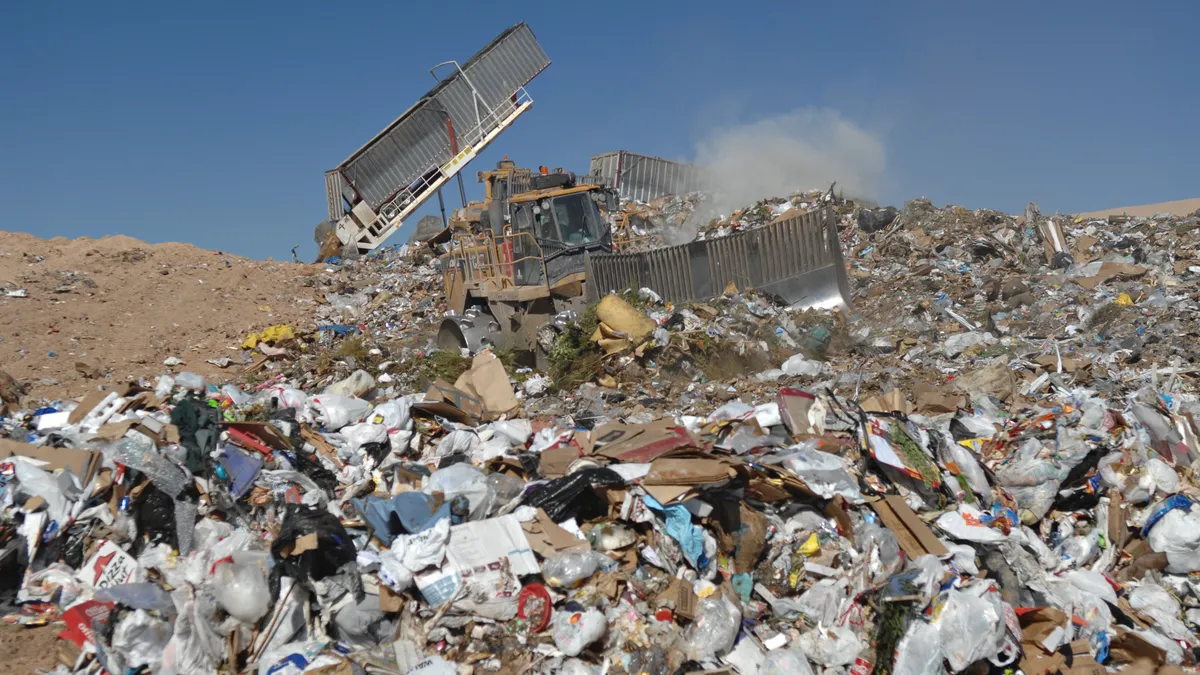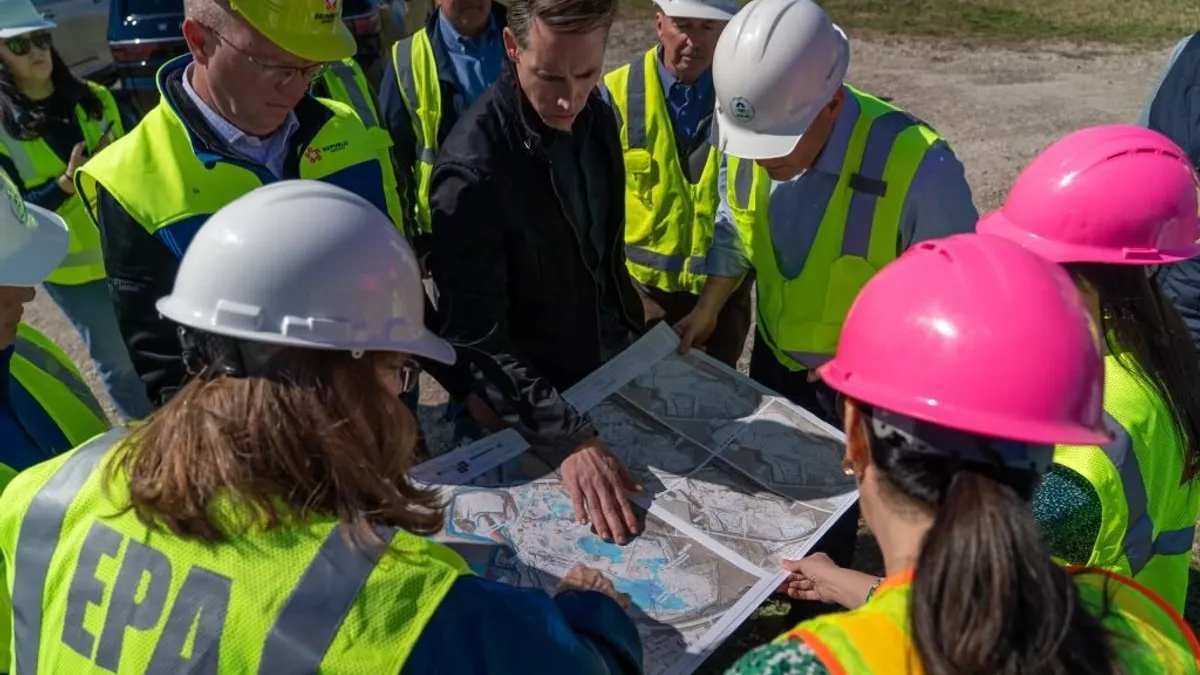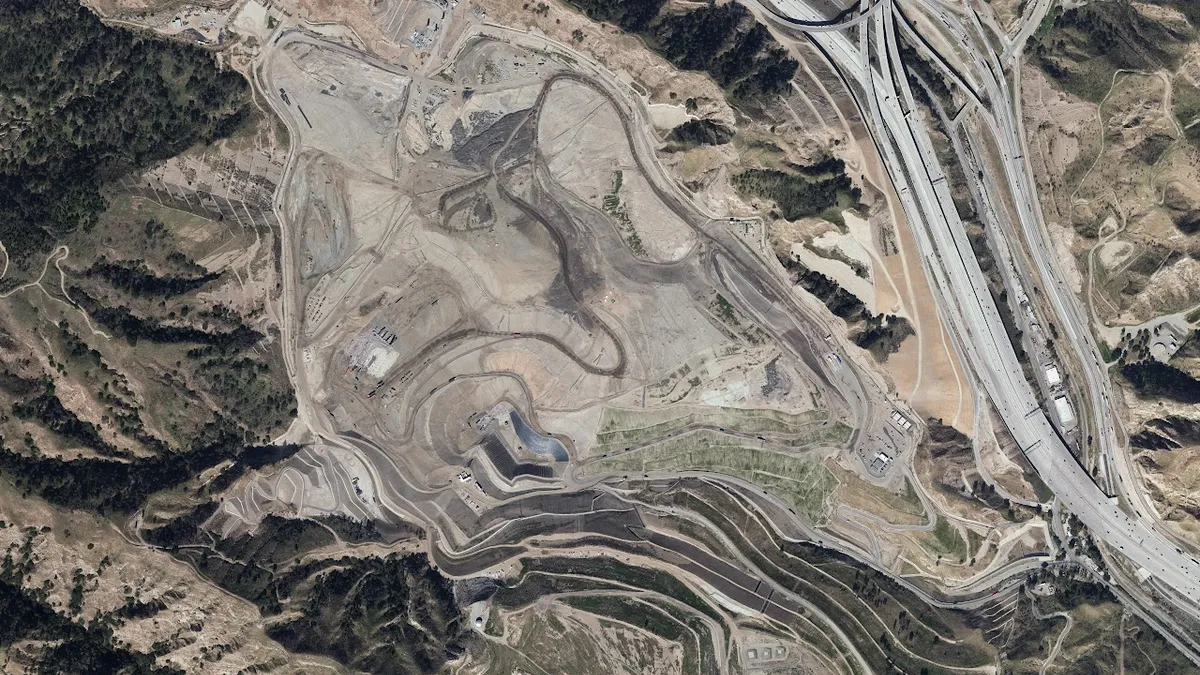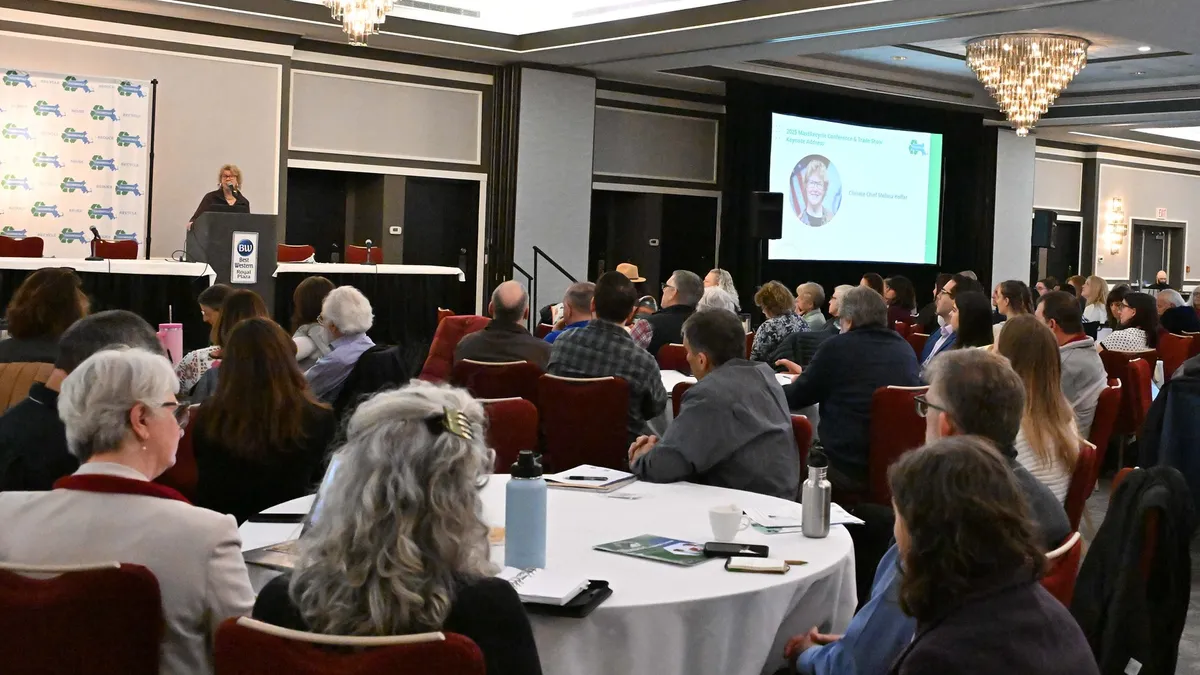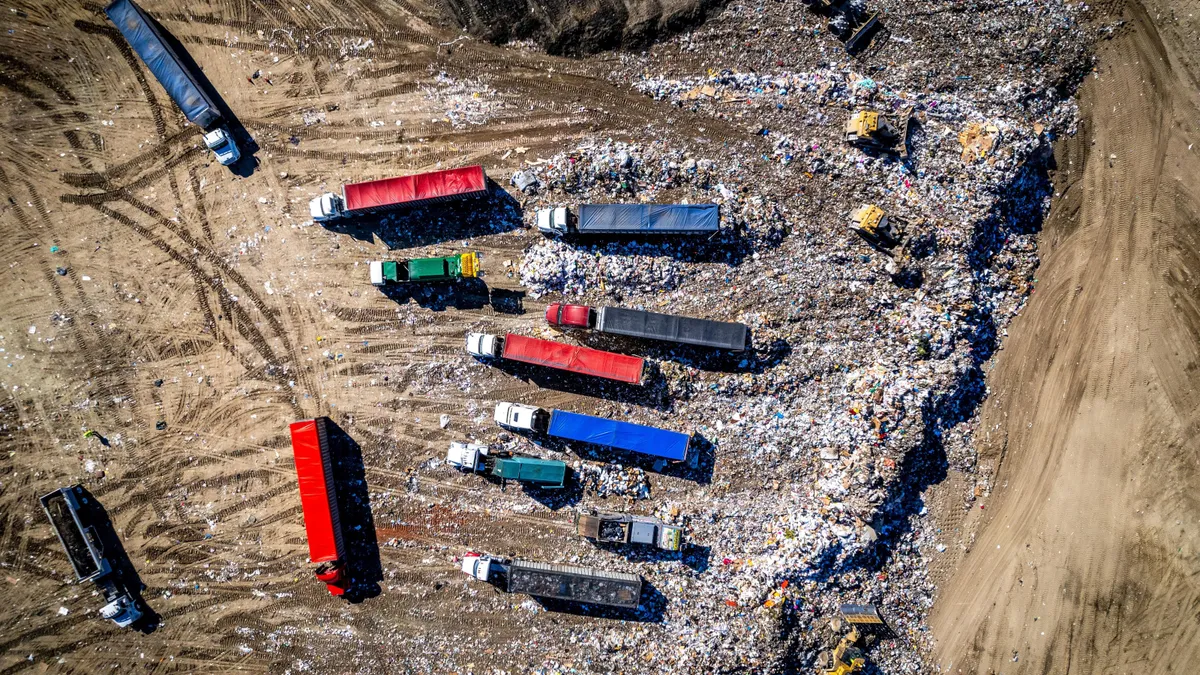Landfill operators must manage the ongoing process of staying in compliance with environmental regulations while handling a changing flow of waste. Related permitting and legal challenges are often years-long endeavors.
In January, several operators secured landfill expansion permits to extend the life of regional landfills, while others achieved major milestones in getting plans or permits approved to better manage leachate or air emissions. Meanwhile, others are facing lawsuits and pushback from residents over odors and health concerns.
These milestones come as landfill operators are also montioring large-scale federal regulatory pressures. The U.S. EPA is could revisit municipal solid waste landfill emission laws later this year, and the agency is expected to soon announce regulations that could affect how landfill operators manage PFAS-containing materials in their facilities.
Here’s a look at some of the more notable landfill actions from January:
Residents near Waste Connections’ Chiquita Canyon landfill file lawsuit over odors
Waste Connections’ 639-acre Chiquita Canyon landfill in Castaic, California, faces a new lawsuit from residents seeking damages due to ongoing odor issues. Certain residents reported experiencing asthma attacks, bloody noses and nausea due to the odors. More than 100 people are listed as part of the lawsuit, CBS News reported.
The landfill has been the subject of more than 4,860 odor complaints and more than 47 violation notices from the South Coast Air Quality Management District between September 6 and January 11.
The lawsuit comes several months after AQMD ordered the landfill to take numerous actions to reduce such odors. AQMD found that the odors are due to an “elevated temperature landfill event” that is creating increased landfill gas production, as well as increased leachate production. The landfill gas at the facility contains elevated levels of dimethyl sulfide, which Chiquita Canyon’s gas treatment system wasn’t designed to remove.
Waste Connections maintains an odor mitigation website with updates on the issue and its mitigation progress, including recent updates on installing new permanent flares and vertical wells. It says it is “doing everything in its power to reduce odors originating from the landfill.” It will host a community information meeting on Feb. 15.
AQMD’s updated order on Jan. 17 called for Waste Connections to continue odor surveillance and use specific landfill gas flares. Waste Connections is also in the process of expanding its gas well system and working with “a committee of experts” to investigate the cause of the odors. A report with those findings is due by April 30.
Republic Services approved for expansion permit in Missouri
Republic Services has received a special exemption permit to expand the Jefferson City Landfill in Missouri by about 15.2 acres. The Jefferson City Council approved the permit on Jan. 16.
Republic told the city that the 76.9-acre landfill has between six and 10 years of remaining airspace, and the expansion could extend the operational life to about 2045, according to documents from the council. Since 2016, Republic has been Jefferson City’s only provider for waste collection and curbside recycling, it said in its permit application.
Expanding the landfill would add about 3.5 million cubic yards of airspace, Republic said in the application. The landfill has been operating since 1979.
Although the city council has approved the special exemption permit, Republic will still need to undergo a five-year permitting process where the state Department of Natural Resources will determine if the site and plan meets state regulations, KRCG reported.
WM affiliate withdraws landfill expansion permit in Houston after environmental justice pushback
USA Waste of Texas Landfills, a subsidiary of WM, has withdrawn a permit for an expansion of its Hawthorn Park Landfill in Houston. The company cited a “realignment of strategic company priorities,” according to Houston Public Media.
The landfill’s proposed expansion plans have long faced pushback from residents who say the facility has negatively impacted their health and property values and created flooding and traffic congestion. Lone Star Legal Aid, an environmental justice group that supported community protests, called the move a “monumental win” for the Carverdale community, a historically Black and Hispanic neighborhood. Newly elected Houston Mayor John Whitmire applauded the news as “a victory for one of our most vulnerable neighborhoods.”
The proposal called for expanding the landfill to about 40 acres and about 127 feet in height, allowing it to operate for an additional 46 years, Houston Public Media reported.
The Texas Commission on Environmental Quality was poised to approve the application in March 2022, saying the application met the required technical aspects, but Harris County announced legal action against TCEQ in 2023, citing environmental justice concerns.
Lone Star Legal Aid called for the City of Houston to prevent future landfill expansion plans by declaring eminent domain on parts of the neighborhood and declaring the landfill a brownfield site, which they say will allow for community development.
Westmoreland landfill moves forward with air quality plan to address leachate issues
The Pennsylvania Department of Environmental Protection has approved an air quality plan for the Westmoreland Sanitary Landfill, a necessary step in helping the Pittsburgh-area landfill address a leachate leak by treating and evaporating leachate on site.
The landfill, operated by Noble Environmental, had previously been fined for mishandling the leachate and other issues, the Pittsburgh Tribune-Review reported. Nearby residents have also complained about the landfill’s odors, the news site reported.
The approved air quality plan sets emissions limits for the landfill operator’s proposed leachate evaporation system, which is expected to treat up to 45,000 gallons per day, according to the permit. The air quality plan also sets requirements for monitoring the leachate treatment system.
The evaporation system is meant to reduce the risk of leachate spills by allowing landfill operators to treat leachate on site instead of transporting it to a treatment facility by truck. DEP is in the process of reviewing a related application to modify the landfill’s waste permit to allow the evaporator system to run on natural gas.
The state fined Noble about $62,400 in 2023, according to a consent order. That order stated the site had inadequate stormwater controls, leachate storage issues, leachate control systems that were broken in some places and landfill slopes that were not sufficiently covered. Noble also was cited in 2020 and in 2021 for other landfill violations, according to DEP. The landfill operator has since submitted documents showing progress on landfill repairs such as retention ponds.
Capital Waste Services’ Tennessee landfill expansion permit approved
The Rhea County Landfill in Dayton, Tennessee, will undergo an expansion to extend the facility’s life by about 33 years and accept an average of 1350 tons per day, according to a new permit authorized by the Tennessee Department of Environment and Conservation. The expansion is also meant to help reduce odor and more effectively manage methane gas emissions, the Chattanooga Times Free Press reported. Capital Waste Services, a subsidiary of GFL Environmental, operates the landfill.
The plan calls for capping a portion of the existing landfill after the expansion is completed. The 190-acre site will include about 99 total acres for waste disposal, which will be developed in phases, according to the permit.
Rhea County officials told the Free Press that the expansion is also necessary to manage waste from surrounding communities. There were about 57 active landfills in Tennessee two years ago, but today there are about 30 due to landfills reaching capacity or not having space to expand, officials told the news site. The Rhea County landfill has been operating since 1996.



